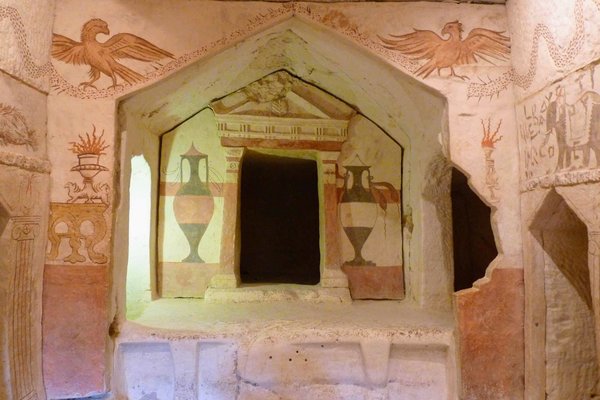Israel
Caves of Maresha and Bet Guvrin
The Caves of Maresha and Bet-Guvrin in the Judean Lowlands as a Microcosm of the Land of the Caves consist of man-made subterranean complexes up to 2,000 years old.
In a layer of soft chalk some 475 cave complexes have been carved out during different periods and for different purposes such as quarries, storage places and tombs. The area was in use from the Iron Age to Persian, Judaic, Hellenistic, Roman and Byzantine antiquity.
Community Perspective: The site covers a large area and needs a car to get around. Highlights include the Columbarium Cave where doves were raised, the burial caves with paintings and inscriptions and the huge caverns of the Bell Caves.
Site Info
Official Information
- Full Name
- Caves of Maresha and Bet-Guvrin in the Judean Lowlands as a Microcosm of the Land of the Caves (ID: 1370)
- Country
- Israel
- Status
-
Inscribed 2014
Site history
History of Caves of Maresha and Bet Guvrin
- 2014: Inscribed
- Inscribed
- 2011: Requested by State Party to not be examined
- After "deferral" recommended by ICOMOS
- Type
- Cultural
- Criteria
- v
Links
- UNESCO
- whc.unesco.org
- Official
-
- en.parks.org.il — Bet Guvrin-Maresha National Park
All Links
UNESCO.org
- whc.unesco.org — whc.unesco.org/
Official Website
- en.parks.org.il — Bet Guvrin-Maresha National Park
News Article
- Aug. 21, 2022 greekreporter.com — Archaeologists Discover Mysterious Ancient Greek Game Made of Bones
- Sept. 4, 2020 smithsonianmag.com — Ancient Israeli Cave Transformed Into Art Gallery
- July 23, 2015 npr.org — The Ancient City Where People Decided To Eat Chickens
Community Information
- Community Category
- Archaeological site: Near Eastern
Travel Information
Recent Connections
-
Chalk
Maresha–Bet Guvrin is an eminent exampl…
-
Microcosm
Full name: Caves of Maresha and Bet-Guv… -
Epic Subtitles
Microcosm of the Land of the Caves
Connections of Caves of Maresha and Bet Guvrin
- Geography
-
-
On National Border
Bet Guvrin: Israel - Palestine
-
- Trivia
-
-
Subterranean Cultural Sites
-
Twin Towns
"the ancient twin towns of Maresha and Bet Guvrin" (AB ev) -
Built or owned by British
The main villa in the village was confiscated by the British army during WWII and used as military headquarters
-
- History
-
-
Knights Hospitaller
There is a Crusader church in Bet Guvrin used by the Knights Hospitalers. -
Historical Food Remains
Chicken bones at MareshaSee www.npr.org
-
The Crusades
There is a Crusader church in Bet Guvrin used by the Knights Hospitalers. -
Phoenician world
Phoenician presence (AB ev) -
Ancient Roman colonies
Bet Guvrin was the seat of a Roman governorate during the 2nd and 3rd centuries CE. It was at this time one of the most important cities in Roman Palestine and a major crossroads. (AB ev) -
Byzantine Empire and Civilization
During the Byzantine period, Bet Guvrin became an important Christian centre (AB ev) -
Canaanite cultures
Maresha
-
- Ecology
-
-
Chalk
Maresha–Bet Guvrin is an eminent example of traditional use of chalk subsurface strata (OUV statement)
-
- World Heritage Process
- Religion and Belief
-
-
Converted Mosques
There is a Crusader church in Bet Guvrin used by the Knights Hospitalers. It was later converted into a mosque -
Jewish religion and culture
Jewish graves -
Mentioned in the Bible
Maresha: "And Rehoboam...built cities for defense in Judah...Gath, and Mareshah, and Ziph" (2 Chron. 11:5-8).
-
- Human Activity
-
-
Historical Graffiti
Beth Guvrin - ships graffiti in MareshaSee www.academia.edu
-
Olive presses
Bet Guvrin -
Stone Quarries
Bet Guvrin: It was as stone quarries that most of the caves were originally dug - "It was during (the Hellenistic) period that extensive building began in the lower city. This required the quarrying of many caves that provided the building blocks for construction on the surface; most of the subterranean complexes were quarried at that time.".... "In the late Byzantine period (the seventh century CE), the bell caves began to be quarried for building stone"... "The Early Muslim period: ..... During this period the caves were further quarried for building stone; that is the time when most of the bell caves were dug. The quarrying of the bell caves reached its zenith during the Early Muslim period, from the seventh to the eleventh centuries CE, when the building material they produced was sold at distant markets. The tenth-century Arab historian Al-Muqaddasi wrote that the district of Bet Guvrin had numerous marble quarries, apparently referring to the chalk quarries in the bell caves. At a later stage of the Early Muslim period, some of the bell caves were turned into columbaria or plastered cisterns" (Nom File)
-
- Constructions
-
-
Roman amphitheatres
The Roman Amphitheater: This amphitheater was originally intended for gladiator fights to entertain the masses (off website) -
Tell
Tel Maresha -
Tunnels
-
Cisterns
-
Cemeteries
Palestinian cemetery -
Baths
public baths -
Dovecotes
"The original excavations were quarries, but these were converted for various agricultural and local craft industry purposes, including oil presses, columbaria (dovecotes)" (AB ev)
-
- Timeline
-
-
Built in the 8th century BC
"The practice of subterranean excavating as quarries and annexes for dwellings and villages began in the 8th century BCE." (AB ev, about Maresha)
-
- WHS Hotspots
- WHS Names
-
-
Epic Subtitles
Microcosm of the Land of the Caves -
Microcosm
Full name: Caves of Maresha and Bet-Guvrin in the Judean Lowlands as a Microcosm of the Land of the Caves
-
News
- greekreporter.com 08/21/2022
- Archaeologists Discover Mysterious…
- smithsonianmag.com 09/04/2020
- Ancient Israeli Cave Transformed I…
- npr.org 07/23/2015
- The Ancient City Where People Deci…
Recent Visitors
Visitors of Caves of Maresha and Bet Guvrin
- Alexander Lehmann
- Argo
- Assif
- Atila Ege
- bergecn
- cflw
- Christravelblog
- Csaba Nováczky
- CynthiaW
- Dennis Nicklaus
- Dimitar Krastev
- Eva Kisgyorgy
- GabLabCebu
- Galgalula
- Gary Arndt
- Grzegorz Andruszkiewicz
- Iain Jackson
- Ilya Burlak
- Ivan Rucek
- Jana and Matt
- Jarek Pokrzywnicki
- Jay T
- JL
- John Smaranda
- Jon Eshuijs
- Justin
- k2flake
- KateY
- Knut
- Lara Adler
- Lukasz Palczewski
- Maciej Gil
- Martina Rúčková
- MaYumin
- Mikan22
- Milan Jirasek
- nan
- Nihal Ege
- Patrik
- Philipp Leu
- Philipp Peterer
- Ralf Regele
- Roger Ourset
- Ronbon
- Sergio Arjona
- sncjob
- Solivagant
- Stanislaw Warwas
- Stijn
- Szucs Tamas
- Tamara Ratz
- Tarquinio_Superbo
- Thomas Buechler
- tony0001
- Valentina
- Vanessa Buechler
- Veronica
- Walter
- Wojciech Fedoruk
- Yongcheng Liu
- Zoë Sheng
Community Reviews
Show full reviews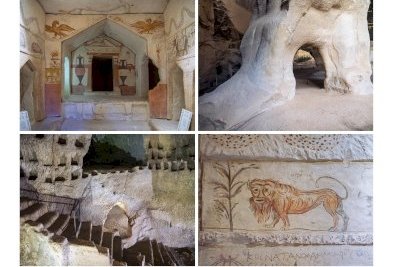
I am giving Bet Guvrin the same rating as the community average, but I probably would have rated it higher if not for the abbreviated nature of my visit. A large part of that was my own faulty planning, but the park closure practices contributed to that significantly.
In August of 2022, I was in Israel with the family on a Bat Mitzvah trip. Having seen every single other WH site in the country in the past, I could not put Bet Guvrin at the forefront of this particular trip's itinerary. I knew that the park likely required no less than 3 hours to see properly, but paring it down to just the main highlights looked like a reasonable bid to stay within the space of an hour and a half on one afternoon. In my experience, 90 minutes is a threshold that should not be exceeded when visiting as a group a place for which not everyone has the same degree of enthusiasm. What I failed to consider is that it could not be an hour and a half right before the closure.
The main sightseeing clusters at Bet Guvrin-Maresha National Park - marked as areas A, B, C, D - are connected by a circuit road that happens to run one way for a significant part (there are actual spikes across the road between lots B and C to ensure that no one drives against the directed flow). A full hour before the park closes, the …
Keep reading 0 comments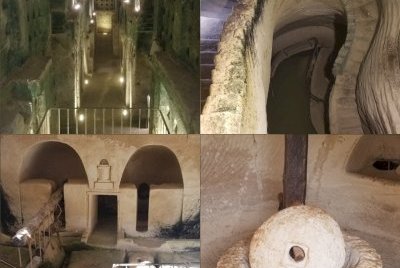
A close second with Masada as the top non-Jerusalem site in Israel, and that's because while Masada looks epic it doesn't have much else going but at the caves here you can explore so much, get a good idea how they used this place with limited availability and it can take a long time to hike everything.
The second art cave in the "back" is currently collapsed but the nearby shop gave me a nice picture to understand what I'm missing. It's probably possible to descend and look around but it's not a wise idea. The one next to it is already pretty great. I also really enjoyed getting led through a cave with odd markers that I never thought would bring me back out but it really did and on the way you get to see the presses, some kind of flooded area and entryways that seem unnatural.
Definitely not something to miss on the trip.
Keep reading 0 comments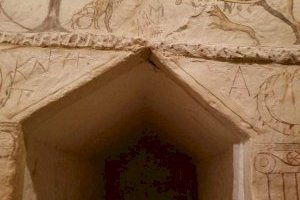
WHS#64
One of the highlights of my May 2018 Holy Land trip was an obscure National Park almost an hour south of Jerusalem. Maresha - Bet Guvrin National Park is home to a huge variety of manmade caves that together form, in my opinion, one of the most interesting archaeological ensembles in the world. It's recommended to have private transportation around the park, as I did, as it's quite a large area. This is not a normal tourist stop mostly because it doesn't really have any biblical or even historic significance, but a visit here is almost sure to impress.
The first part of my visit was to the ancient city of Maresha. Well, I didn't exactly see an ancient city, I'll tell you that. Instead, I had to climb a hill, which I believe was the tel, to get to the excavated caves. The caves I encountered were columbariums - caves used for raising pigeons with little niches in the wall. Indeed, I walked down and saw a huge cavern, almost like a giant catacomb or beehive, with little holes all over the walls. While the caves aren't being used by man anymore, they're still used by the avian inhabitants, as evidenced by ever-so-subtle scent of guano. And the birds flying around, of course. These columbariums seem to come in different shapes, with one being quite boxy or compartment-like and another like a bell cave. I hear there are also other types of caves in Maresha, but …
Keep reading 0 comments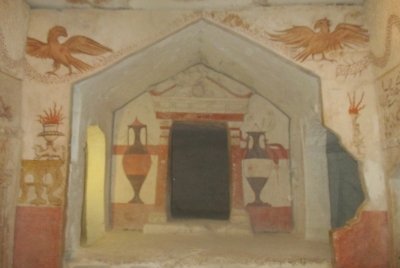
This site was one I had never heard of before investigating the UNESCO sites of Israel, but it turned out to be one of the highlights of our trip. I guess it really isn't featured in package tours because it doesn't have a strong religious connection, so in that way it is a lot less visited. But for our independent tour, it was an easy drive from Tel Aviv.
There are three main types of caves here: the more residential caves of Maresha, the Sidonian tombs, and the bell caves which are former chalk quarries. As a bonus, right across the road you get a Roman amphitheater, crusader ruins, and more.
We started our exploration with the caves of Maresha. The park entrance gives you a nice guide to follow for your walking tour of the place. The highlight of the first part of the tour is the columbarium -- a surprisingly large complex of a grid of aisles with thousands of niches for raising pigeons. Continuing along the trail, you encounter caves devoted to ancient olive presses and a bathtub cave. You can also walk to the top of Tel Maresha, the mound over the biblical city of Maresha. We did this, but it isn't that exciting. Near the end of our trail is another really enjoyable complex of caves, which were mostly cisterns under the ancient villas. Today, they are interconnected below ground so you can explore up and down various stone staircases and along different …
Keep reading 0 comments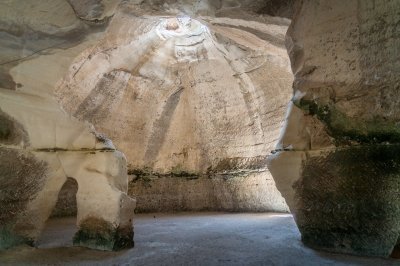
There are several parts of Bet Guvrin which I found fascinating. First, it is one of the only places in Israel where the public can participate in an archaeological dig. There are numerous caverns which were dug under the houses of people in the area which were later used for garbage. Because the artifacts in the garbage were mixed, there are no formal strata that need to be preserved, so they are willing the let the public help out in digging.
Also, all of the caverns were dug by hand and many of them are enormous. They were dug over centuries by just extending the floor of the cavern further down. It is a popular attraction for Israelis but few foreigners bother to visit.
Keep reading 0 comments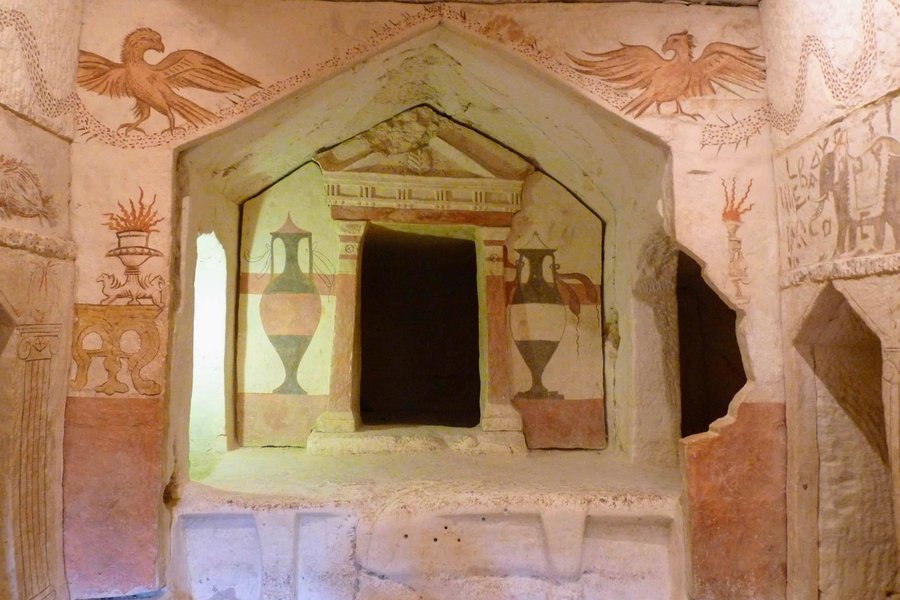
I visited the Caves of Maresha and Bet Guvrin the day after I arrived in Israel. The flights from the Netherlands arrive passed midnight and the next day i drove from the airport to Jerusalem but first visited the Caves of Maresha and Bet Guvrin.
It's a nice park; and best to go around by car. The Roman parts are outside the park and free to visit. In the park there are 4 places to park the car and see the caves around there.
It looks small if you're at the entrace, but once you go underground some complexes are very big. I really enjoyed my visit. Do take a pick nick lunch! Lots of places to eat but not much available in the park.
Recommend to go from Tel Aviv or Jerusalem; easily reached in a day by car. Photo's see the link below.
Keep reading 0 comments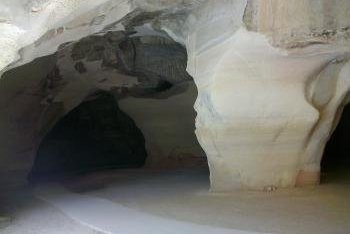
Bet Guvrin-Maresha National Park is located in about one hour drive from Jerusalem to the south, in a very nice area next to the boarder with Palestine. The complex consists of excavations in Maresha and more famous caves in Bet Guvrin. The whole site is quite large, which makes it difficult but doable without a car. Unfortunately, due to the lack of time that day we were not able to visit Maresha, so we focused on the caves of Bet Guvrin.
There are in general two types of caves in the park – first ones, much smaller and shallow, served as burial places during Sydonian times. They are covered with well-preserved paintings and Greek inscriptions. Then, around 1km ahead, there are famous bell caves – about 800 beautiful grottos spread over a picturesque area. Although they look like made by nature, I was surprised to find that most of them were actually human-bored. Most of them have holes in the center of the ceiling and sunlight plays inside making the interior view very intersesting.
I found this WHS one of the most interesting in Israel and it is strange to me that it is so rarely visited. During our visit in December only few tourists were there and even the entrance was free (or maybe we just did not notice the ticket office).
Keep reading 0 comments
We included the National Park of Bet Guvrin-Maresha in our tour of Israel, just a few weeks after the site has been included in the Unesco family.There was no commemorative plate yet.I would say its a great advantage of travelling with a car as the different sites within the park are far from each other.They give you a handy leaflet at the entrance with detailled informations.Bet Guvrin was for me quite special for the variety of beautiful caves dug by its former inhabitants.There you find the Columbarium Cave where doves were raised in over 2000 niches-for their eggs, meat and also the fertilizer was used.Doves were also sacrified in religious rituals.Just in Maresha (which was abandoned during the Roman period) some 85 combarium caves have been found, with tens of thousand of niches.
Other hightlights are the socalled Sidonian caves which were used during the Hellenistic period as burial grounds.
They contain rich frescoes and inscriptions.
The Bell Caves date from the Byzantine period and are a great sight, not to be missed at the end of the circuit.
They come in all shades of greytones, and are really huge.
Keep reading 0 comments
Bet Guvrin-Maresha is a large archaeological park with abundant testimonies to its different inhabitants in the course of history including Edomites, Phoenicians, Greeks, Jews, Romans, Crusaders and Arabs. The site is mostly known for its exceptional elaborate cave system which was carved in the soft rock for different domestic and agricultural purposes. I would certainly recommend not to miss the Roman amphitheatre at the site. It is not as impressive as the ones in Verona and Rome but it is certainly the best one in Israel. Another prominent finding were the Phoenician tombs covered with frescoes.
Keep reading 0 comments
